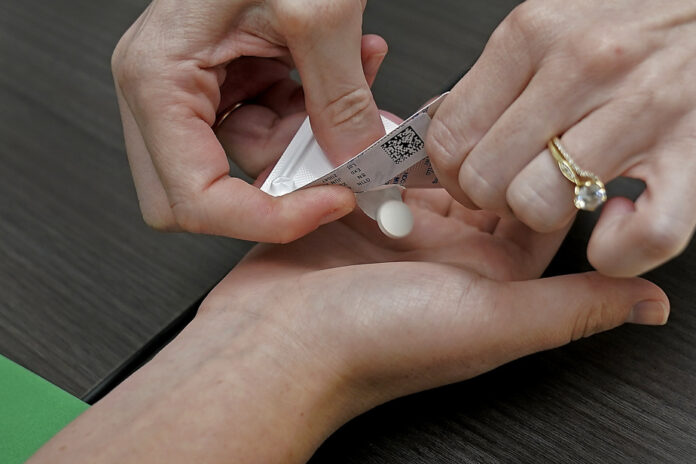(Washington) The Supreme Court of the United States, which was to rule on Wednesday on the legal puzzle over the fate of the abortion pill in the country, decided to temporarily extend full access to the stamp.
The high court said in a terse text that its suspension of a lower court’s decision on the pill was extended for 48 hours, until “11:59 p.m. Friday, April 21”.
Less than a year after overturning constitutional abortion protections, the conservative-majority high court has been rushed by Joe Biden’s government after conflicting court rulings.
Across the United States, abortion rights advocates and opponents have been anxiously awaiting his decision on this “judicial ping pong” with a very uncertain outcome, in the words of Carrie Flaxman, of the family planning organization Planned Parenthood.
This latest twist in the conservative assault on abortion rights is about nationwide access to mifepristone.
In combination with another drug, mifepristone is used for more than half of abortions in the United States. More than five million American women have already taken it since it was approved by the United States Drug Administration (FDA) more than 20 years ago.
The Supreme Court “faces a clear choice: maintain legal and scientific fact or capitulate to extremism. Stand with the American people or betray their trust. Protect freedom or encourage tyranny,” Democrat Congresswoman Katherine Clark said Wednesday in Washington.
“Republicans have one goal: a nationwide abortion ban. They want to control women in every state and in every zip code,” she added.
It all started when a federal judge in Texas known for his Christian faith and his ultraconservative positions, appointed by Donald Trump, withdrew the marketing authorization for mifepristone on April 7 after being seized by anti-abortion activists. Despite the scientific consensus, he felt that it posed health risks to women.
An appeals court, seized by the federal government, then allowed the abortion pill to remain authorized, but by limiting the access facilities granted by the FDA over the years.
His judgment thus amounted to prohibiting the mailing of mifepristone and returning to a use limited to seven weeks of pregnancy, instead of ten.
The federal government then rushed to the Supreme Court. The latter temporarily maintained access to the abortion pill on Friday, suspending the decision of the court of appeal in order to have more time to examine the file.
Further complicating the matter, a federal judge sitting in Washington state, appointed by Barack Obama, had ruled immediately after his colleague’s decision in Texas that mifepristone was “safe and effective” and had prohibited the FDA from withdrawing its approval in 17 states and in the capital.
The suspension by the Supreme Court lasts until Wednesday just before midnight.
On Tuesday, a coalition of anti-abortion doctors urged the temple of American law to leave the appeals court ruling in place.
The FDA and the pharmaceutical company Danco, which manufactures mifepristone, have “continuously put politics ahead of women’s health”, denounced these associations of gynecologists and pediatricians campaigning against abortion.
“Without a suspensive decision, mifepristone will cause even more physical complications, emotional trauma and even death in women,” the doctors argued, saying it would also harm “plaintiffs by forcing them to perform abortions at the card violating their conscience”.
President Biden had ruled that the judge’s decision in Texas was “completely overboard” and said he was determined to “fight” it.
The abortion pill is no longer officially available in some fifteen American states that have recently banned abortion, even if roundabout routes have been developed. The impact of restrictions or a ban on this pill would therefore primarily concern states where abortion remains legal – for many Democrats.
Experts and bosses in the pharmaceutical sector fear that these legal actions will open the way to the questioning by the courts of other drugs.
“It is not unrealistic to say that if a judge can wake up in the morning and decide that he wants to take a drug off the market […], then a judge can do the same for vaccines or antidepressants that he don’t like,” said Josh Sharfstein, a former FDA official.


















